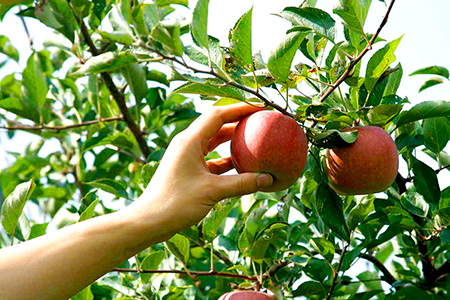Jesus told a parable to his disciples: ‘Can one blind man guide another? Surely both will fall into a pit? The disciple is not superior to his teacher; the fully trained disciple will always be like his teacher.
Why do you observe the splinter in your brother’s eye and never notice the plank in your own? How can you say to your brother, “Brother, let me take out the splinter that is in your eye,” when you cannot see the plank in your own? Hypocrite! Take the plank out of your own eye first, and then you will see clearly enough to take out the splinter that is in your brother’s eye.
‘There is no sound tree that produces rotten fruit, nor again a rotten tree that produces sound fruit. For every tree can be told by its own fruit: people do not pick figs from thorns, nor gather grapes from brambles. A good man draws what is good from the store of goodness in his heart; a bad man draws what is bad from the store of badness. For a man’s words flow out of what fills his heart.’ (Luke 6:39-45)
We live in a world of words thanks to modern mass media and, particularly, social media. We have seen the extremely harmful way in which words can be used in harsh judgement against other people, and the sheer vitriol of some on social media gives us pause for thought. It begs us to ask the question, implied in the first reading for today (Eccl 27:4-7), ‘What do my words reveal about who I am?’
Today’s Gospel is our final reading from Luke’s Sermon on the Plain. This week, Jesus’ radical teaching continues to focus on lavish generosity in our dealings with one another.
The Gospel opens with a parable about one blind person leading another and both falling into a pit. The disciples, like ourselves, are on a lifelong journey with Jesus, our teacher. On this journey there is always more to discover, greater depths to be plumbed, new insights to be gained as we grow to be more like Jesus; as we move from being ‘blind’ to ‘seeing’ with the eyes of Jesus.
We gradually learn to let go of our self-righteous inclination to judge small faults in others while never noticing our own larger, more destructive, blind spots (the story of the splinter and the plank).
When we learn God’s way of mercy and generosity we refrain from the kinds of judgements which would otherwise limit God’s generosity, mercy and kindness at work in us. Our hearts are being built in goodness.
Like trees that are known by their fruit, so will the disciples be known by their words and actions, their values and attitudes, by who they truly are, by what is in their heart.
Our journey of learning with Jesus gradually builds God’s heart within our own so that we live, speak and act, more and more, out of that great store of mercy and generosity.
Read our prayers and reflections for this Sunday here.
Celebrating At Home 8th Sunday in Ordinary Time [PDF]
Celebrating At Home 8th Sunday in Ordinary Time [ePub]















